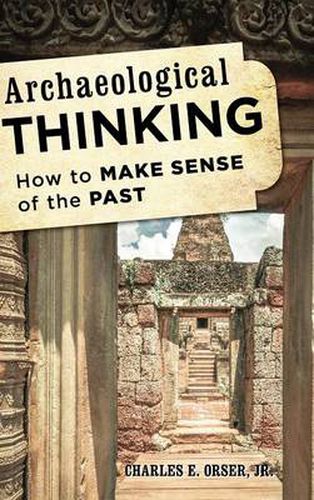Readings Newsletter
Become a Readings Member to make your shopping experience even easier.
Sign in or sign up for free!
You’re not far away from qualifying for FREE standard shipping within Australia
You’ve qualified for FREE standard shipping within Australia
The cart is loading…






How do archaeologists think? How do they use the scattered and often-fragmentary remains from the past-both historical and excavated-to create meaningful, sensible interpretations of human history? In Archaeological Thinking, Charles E. Orser Jr., provides a commonsense guide to applying critical thinking skills to archaeological questions and evidence.
Rather than critiquing and debunking specific cases of pseudo-archaeology or concentrating on archaeological theory, Orser considers the basics of scientific thinking, the use of logic and analogy, the meaning and context of facts, and the evaluation of source materials. He explains, concisely and accessibly, how archaeologists use these principles to create pictures of the past and teaches students to develop the skills needed to make equally reasoned interpretations.
$9.00 standard shipping within Australia
FREE standard shipping within Australia for orders over $100.00
Express & International shipping calculated at checkout
How do archaeologists think? How do they use the scattered and often-fragmentary remains from the past-both historical and excavated-to create meaningful, sensible interpretations of human history? In Archaeological Thinking, Charles E. Orser Jr., provides a commonsense guide to applying critical thinking skills to archaeological questions and evidence.
Rather than critiquing and debunking specific cases of pseudo-archaeology or concentrating on archaeological theory, Orser considers the basics of scientific thinking, the use of logic and analogy, the meaning and context of facts, and the evaluation of source materials. He explains, concisely and accessibly, how archaeologists use these principles to create pictures of the past and teaches students to develop the skills needed to make equally reasoned interpretations.